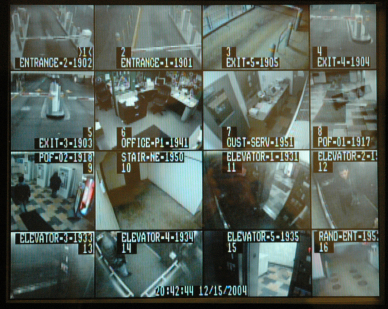
An arrest is the formal exercise of police restraint over a person until they are officially released. If a police officer sees someone commit a crime, they can take that person into custody. For example, say an officer on street patrol witnesses a purse-snatching theft. They can immediately arrest the purse-snatcher for the criminal offense.
In most states, the officer can choose whether to arrest the suspect or give a citation. If there are criminal charges, they’re typically based on the personal observations of the police officer.
Some states restrict the use of arrests for serious crimes. Officers issue citations or court summons for low-level misdemeanor crimes in those states instead of bringing the suspect to the police station or sheriff’s office to file charges.
When law enforcement reasonably believes a person has committed a crime, they can take that person into custody. This reasonable belief is “probable cause.” Police cannot base an arrest on a hunch or a guess. A law enforcement officer must have an objectively reasonable basis for their belief based on the facts and circumstances in the criminal case.
State laws vary on the circumstances leading to an arrest without a warrant. Typically, police officers have less discretion to arrest someone for misdemeanor criminal charges based on probable cause.
Most arrests do not occur from freshly committed crimes or hot pursuits. Usually, they result from police investigations. During these investigations, the Fourth Amendment protects people against unreasonable searches or seizures by law enforcement. This requires officers to obtain a warrant which specifies under oath where officers can search and the persons or things they can seize.
Under the Fourth Amendment, one has a reasonable expectation of privacy in their home. Suppose the police have probable cause to believe a person committed a crime, and that enough evidence will be in a particular location. In that case, they can ask a judge for a search warrant.
For example, say the police receive confirmation from a credible source that a suspect is hiding stolen goods in the basement of their home. The officer can request a search warrant for the suspect’s home that specifies the basement as the search area.
Suppose the police have probable cause to believe a person committed a crime and want to bring them in for questioning or charges. In that case, the police can ask for an arrest warrant to take the suspect into legal custody.
An arrest warrant typically: 1) Identifies the crimes committed and the corresponding statutes, 2) Identifies the individual suspected of committing the crimes, 3) Specifies the locations and dates of the offenses, 4) Identifies any victims of the criminal activity and 5) Commands any police officer to take that person into custody.
The arrest warrant gives any police officer or law enforcement agency the authority to arrest the suspect. It does not have to be the officers who are investigating the crime. This information is usually spread statewide (or nationwide) through police databases. When an officer checks the person’s identification and arrest record, they will learn about the warrant and can take them into custody.
The Fifth and Sixth Amendments to the U.S. Constitution provide people with certain rights while in custody. The Fifth Amendment protects the right not to incriminate oneself. Additionally, you’re entitled to due process of the law. This means that under the U.S. Constitution, you should receive notice about your case and a fair trial before your life, freedom, or property is taken away.
If the police want to interrogate a person in police custody, they must inform the person of their Miranda Rights. This includes the right to remain silent and the right to an attorney. On television, the police are often depicted reading suspects their Miranda Rights immediately upon arrest. That is not necessary and frequently differs from how things happen in the real world.
The police do not have to read the Miranda warning immediately upon arrest. They do not need to read Miranda rights when taking a suspect to jail for arraignment. They only need to read the Miranda warning when a suspect in custody is being questioned. However, anything you say voluntarily can be used against you even before you’re advised. So, it is in your best interest to remain silent and request an attorney.
If you or a loved one is in a bind as a result of a criminal charge (malicious mischief or otherwise), immediately contact a Seattle Criminal Attorney. A Criminal lawyer is not going to judge you and understands that everyone makes mistakes. Hiring a Seattle Criminal Lawyer to help can – at a minimum – reduce penalties and can help direct people on how to best deal with their criminal charge, and many times even get them dismissed. So, it should go without saying that someone cited for a misdemeanor or felony should hire a qualified Seattle Criminal Lawyer as soon as possible. Criminal charges can cause havoc on a person’s personal and professional life. Anyone charged with a crime in Washington State should immediately seek the assistance of a seasoned Seattle Criminal Lawyer. SQ Attorneys can be reached at (425) 359-3791 and/or (206) 441-0900.


